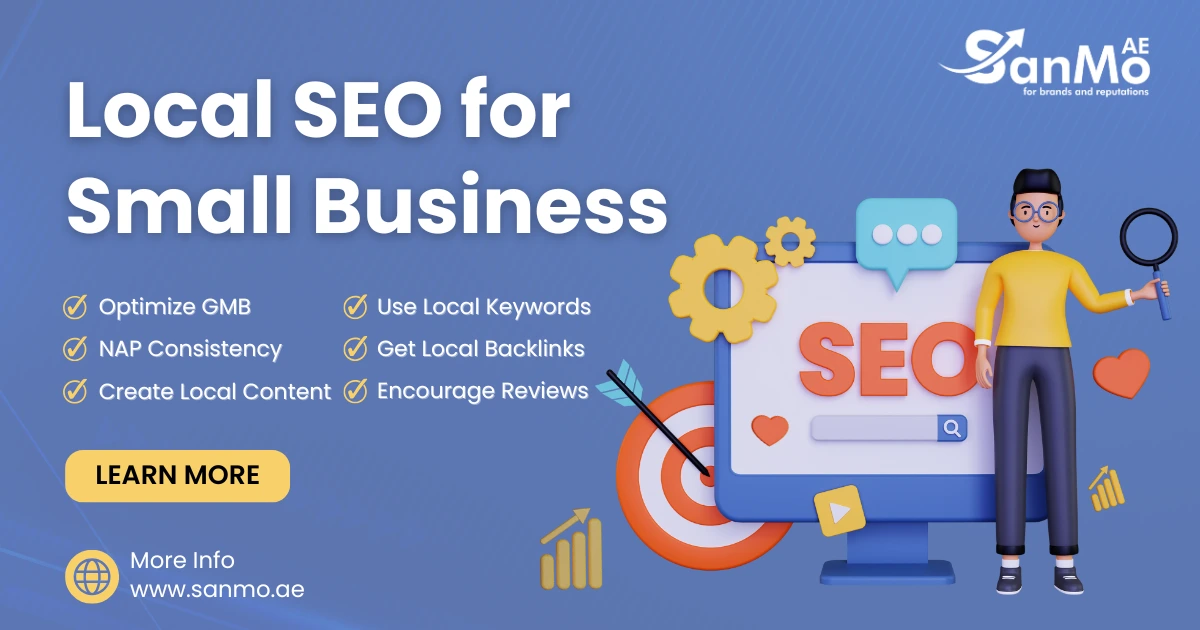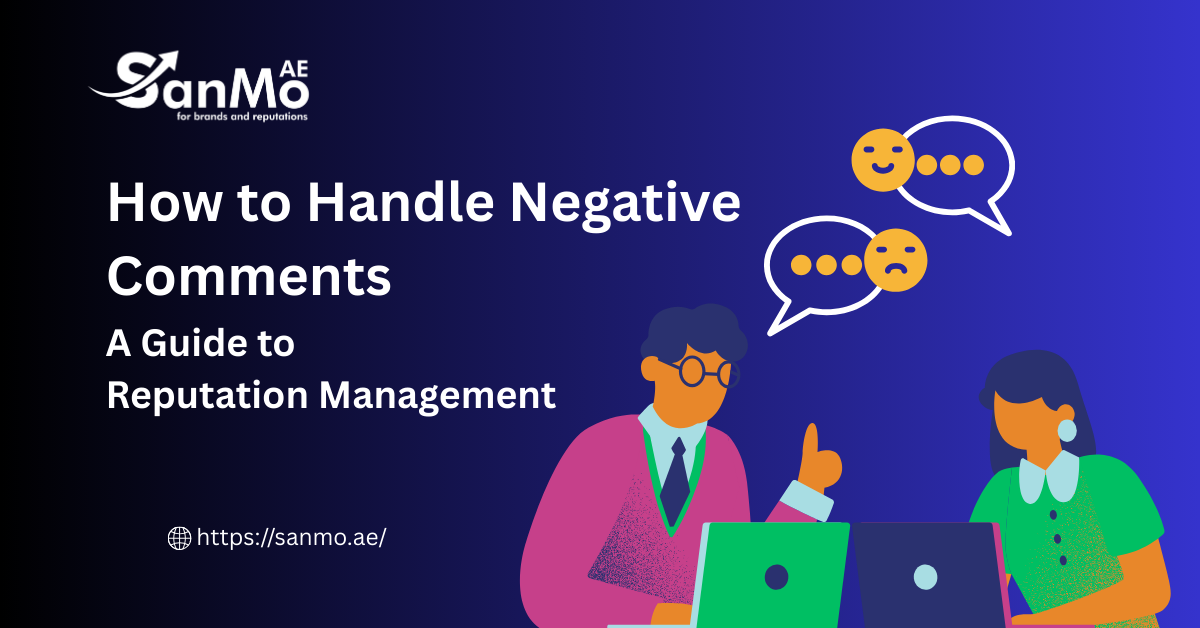Local SEO is revolutionary for small businesses trying to develop a solid, devoted clientele. By focusing on local search optimization, you improve your visibility to nearby customers actively searching for products or services like yours. Here’s a collection of actionable local SEO tips, each crafted to help your small business stand out and win in its local market.
Claim and Perfect Your Google Business Profile
For local SEO, your Google Business Profile (previously Google My Business) is essential. Claiming this listing and optimizing it with accurate information helps potential customers find you easily in local Google searches and on Google Maps. Here’s how to maximize its potential:
- Take Back Your Profile: You may build or claim your listing by going to Google Business Profile. Google will verify your business through a quick postcard, phone, or email process.
- Add Detailed Business Info: Provide consistent details like your business name, address, phone number (NAP), website, business hours, and services. Consistency here strengthens your presence in local search results and keeps customers well-informed.
- Upload high-quality photos: Including high-quality images of your products, services, team, and location builds trust and gives potential customers a virtual preview.
- Encourage Customer Reviews and Respond to Them: Reviews are a vital ranking factor for local SEO. Ask satisfied customers to leave positive feedback and respond professionally to reviews to demonstrate excellent customer service.
Maintain Consistent NAP Information
Consistency in your business’s NAP (name, address, and phone number) is essential for building trust with search engines and customers alike. Google uses your NAP to validate your business’s identity, and inconsistencies can harm your local SEO.
- Check Major Directories: Update your business information on sites like Yelp, Facebook, Bing Places, and Apple Maps. Correct any discrepancies to strengthen your online credibility.
- Use Structured Citations: Structured citations on popular directories like Yelp, Yellow Pages, and the BBB reinforce your local SEO. You can manage these citations using tools like Moz Local or BrightLocal, ensuring consistency across all sites.
Optimize Website Content for Local Keywords
To reach customers in your local area, use keywords that directly address your location. Optimizing your content for these local search terms improves your chance of appearing in relevant searches.
- Do Local Keyword Research: Use tools like Google Keyword Planner, Ahrefs, or SEMrush to discover phrases that your local customers commonly search, such as “best [service] in [city].”
- Incorporate Local Keywords on Key Pages: Place your keywords naturally on your homepage, service pages, and contact page. Don’t forget to include them in titles, meta descriptions, and headers for maximum impact.
- Develop Localized Blog Content: Writing blog posts on local topics, like community events or service-related topics specific to your area, boosts your relevance in local searches.
Make Your Website Mobile-Friendly
Most local searches come from mobile users, so ensuring your website is mobile-friendly is crucial. A seamless mobile experience encourages more engagement, lower bounce rates, and improved search rankings.
- Design for Mobile Responsiveness: Ensure your website layout is responsive and adapts to various screen sizes. This helps users navigate easily and keeps them on your site longer.
- Focus on Page Speed: Speed is key for user experience and ranking. Use Google’s PageSpeed Insights to identify slow elements and make the necessary improvements.
- Add Click-to-Call Buttons: Make it easy for users to reach you by including click-to-call buttons on your homepage and contact page. This simple addition makes it easier for mobile users to contact you instantly.
Create High-Value, Localized Content
Content focused on your area and audience can improve both local relevance and user engagement. By connecting your business to local news, events, and issues, you demonstrate that your business is part of the community.
- Write About Local Events and Community News: Create blog posts or social media content around local events or community news. This can drive more local traffic and build loyalty with area residents.
- Create Location-Specific Landing Pages: If you serve multiple locations, develop individual pages for each area. For example, a landscaping business might have separate pages for “Landscaping in [City A]” and “Garden Design in [City B].”
- Feature Local Partnerships: Highlighting partnerships with other local businesses not only builds connections but also attracts local attention and potentially valuable backlinks.
Build Quality Local Links
Building links from respected local websites can strengthen your SEO and improve your reputation in the community. These backlinks signal to Google that your business is relevant and trusted in the area.
- Partner with Local Businesses: Collaborate with nearby businesses for cross-promotions, guest posts, or co-sponsored events. These activities often result in high-quality backlinks to your website.
- Interact with Local Media: To share your experience or narrative, get in touch with bloggers, influencers, or local media. Your exposure and backlink profile can be improved by being included in a local publication.
- Sponsor Local Events or Causes: Sponsoring a local event can often lead to a backlink from the organizer’s website, in addition to building goodwill in the community.
Optimize for Voice Search
With the rise of voice-activated devices, optimizing for voice search is increasingly important, especially for local businesses. People often phrase voice queries as questions, so adjusting your content for these search patterns can be beneficial.
- Use Conversational Language: People ask voice assistants questions in a conversational tone, so structure your content to match. Phrases like “best [product/service] near me” are common in voice searches.
- Answer Common Questions: Write content that directly answers questions customers frequently ask. An FAQ page is especially useful for answering these in a straightforward way.
- Focus on Localized Phrasing: Voice searches often include terms like “open now,” “near me,” or “in [city].” Include these terms naturally in your content to increase visibility for voice searches with local intent.
Leverage Social Media to Strengthen Local SEO
Social media may not directly impact SEO, but it significantly enhances your visibility and engagement within your local area. Active engagement on social media can improve customer loyalty and amplify word-of-mouth recommendations.
- Keep NAP Details Consistent: Make sure your business’s address, phone number, and other critical details match your website information on all social media platforms.
- Share Localized Content: Post about local events, news, and updates to connect with your community. Sharing relevant local content increases the likelihood that people in your area will follow and engage with your business.
- Encourage Check-Ins and Reviews: Platforms like Facebook allow customers to check in at your business location. Encourage this to boost visibility and add credibility to your profile.
Monitor and Manage Your Online Reputation
Online reviews and brand reputation play a significant role in local SEO. The more positive your reputation, the more likely local customers are to choose your business. Responding professionally to both positive and negative reviews shows you value customer feedback and encourages new customers to trust you.
- Respond to Reviews Promptly: Whether it’s a glowing five-star review or a critical comment, always respond professionally and quickly. Positive engagement shows potential customers that you care about customer satisfaction.
- Monitor Mentions and Feedback: Use tools like Google Alerts or ReviewTrackers to keep track of online mentions. Address concerns quickly to maintain a positive image.
- Encourage Satisfied Customers to Leave Reviews: After a positive interaction, ask customers to share their experience online. A steady flow of positive reviews can make a huge difference in your local SEO ranking.
Conclusion
With consistent local SEO practices, small businesses can outperform larger competitors in their local market. By building a strong Google Business Profile, optimizing website content for local searches, engaging in local link-building, and keeping an eye on online reputation, small businesses can significantly boost visibility. Embracing these strategies can help you connect with your community, attract loyal customers, and build a strong foundation for local success.







